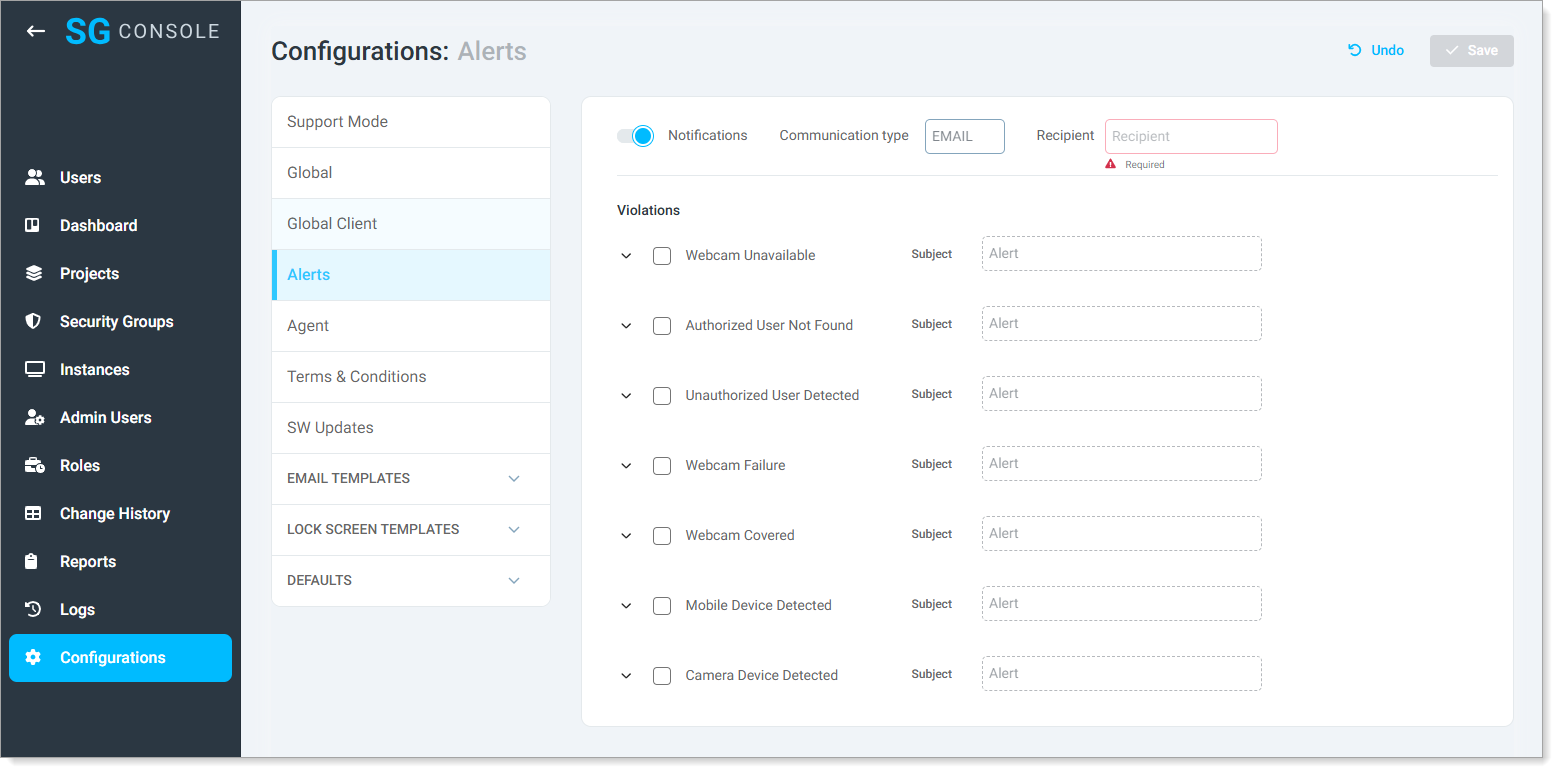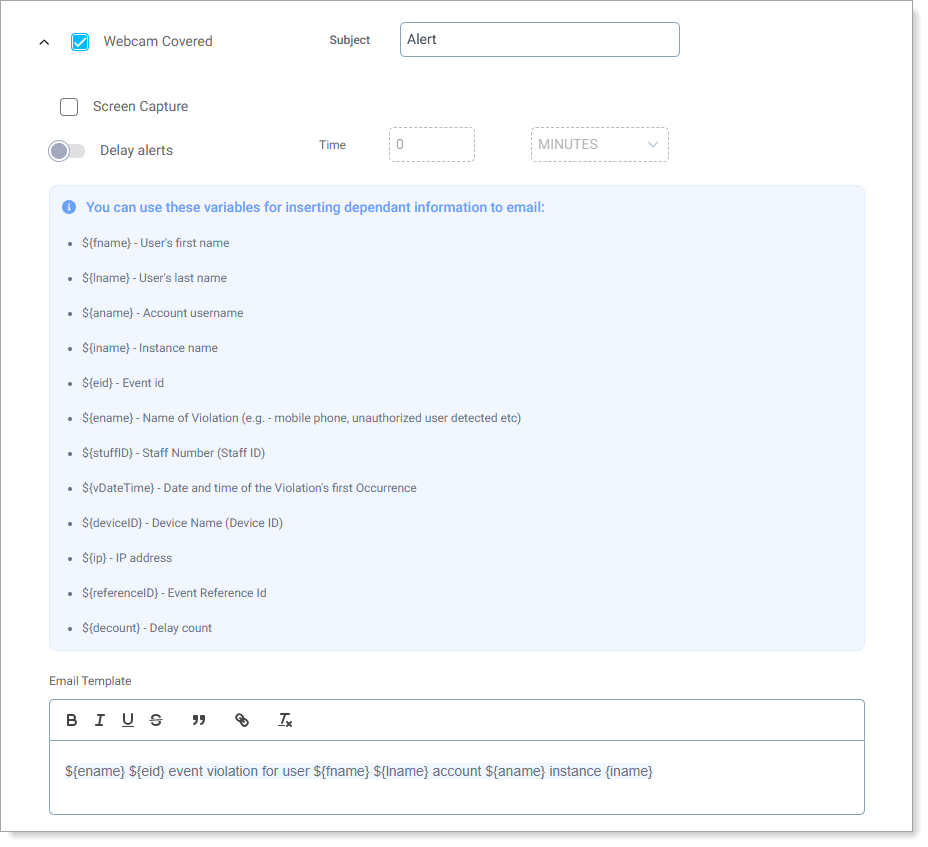Configure alerts and notifications
You can decide which violations trigger alerts and define how SessionGuardian generates notifications.
Alert types
The SessionGuardian Console Server sends alerts for the following violations on end user devices:
Authorized user not found
Unauthorized user detected
Phone detected
Camera detected
Webcam unavailable
Webcam failure
Webcam detected
Configure and customize alert notifications
Set up and personalize notifications to ensure timely alerts for specific violations and tailor email templates to include relevant details.
In the Admin Console, click Configurations > Alerts.

Turn on Notifications.
Result: By default, the Communication type is set to EMAIL.
In the Recipient field, enter an email for the security team, security operations center (SOC), or incident response team to ensure timely alerts.
In the Violations section, for each violation type, select the corresponding check box to enable it and configure the following options as needed.
Subject
The subject line for the email alert.
Screen Capture
Enable this option to capture the desktop of the end user, including visible applications and data, at the time a violation occurs.
Note
Configure your cloud storage location in your environment before activating this feature.
Delay Alerts
Generate notifications only after the system meets the configured thresholds.
Enter a time in minutes, hours, days, or weeks.
Email Template
Customize the email message with rich text, hyperlinks, and audited violation details.
You can use placeholders in the email template to include specific details. Below are some of the predefined variable attributes. For the full list, refer to the Configurations: Alerts UI in the application.
${ename}– Event name${eid}– Event ID${fname}– User's first name${lname}– User's last name${aname}– Account username${iname}– Instance name

Save your changes.